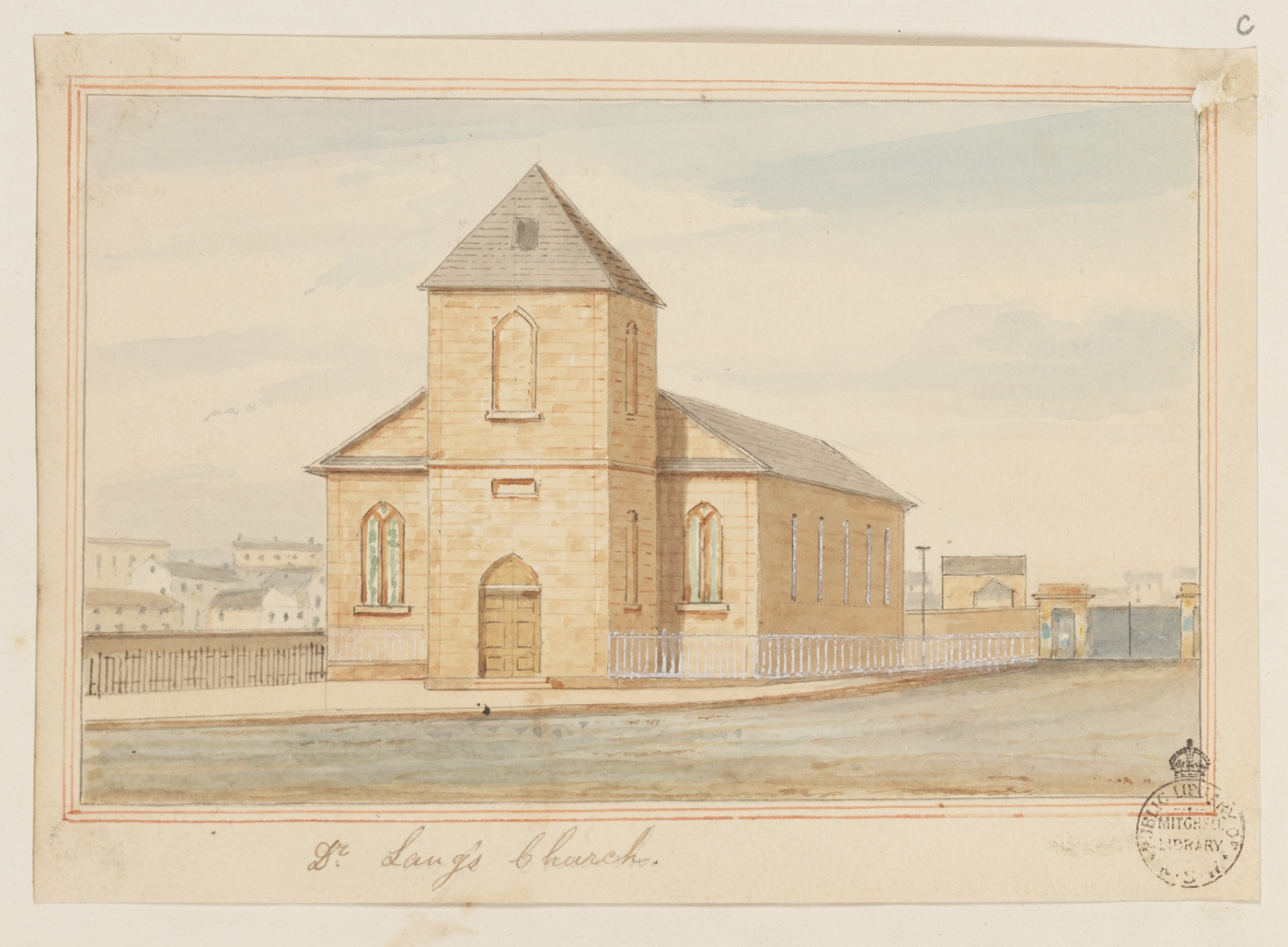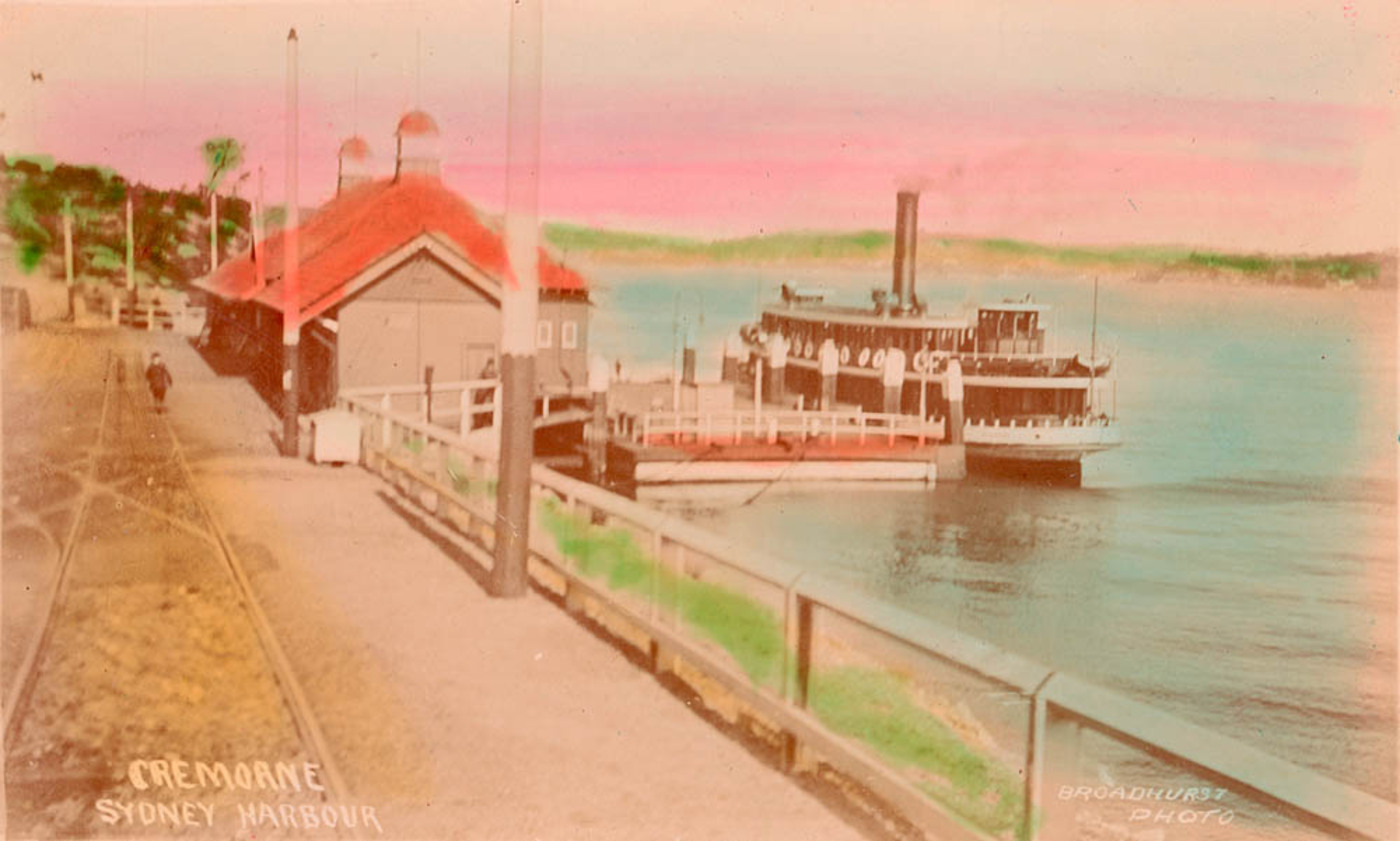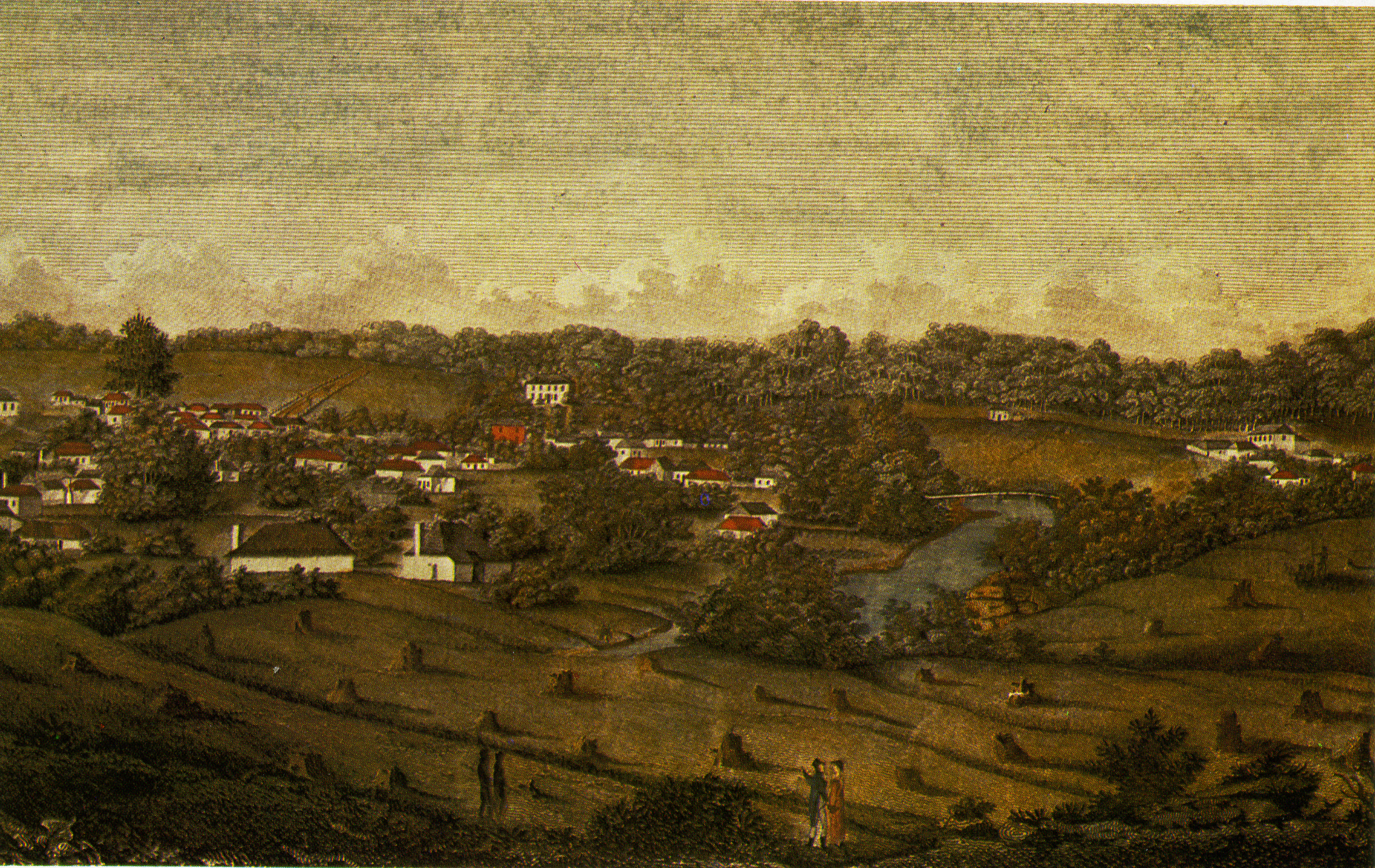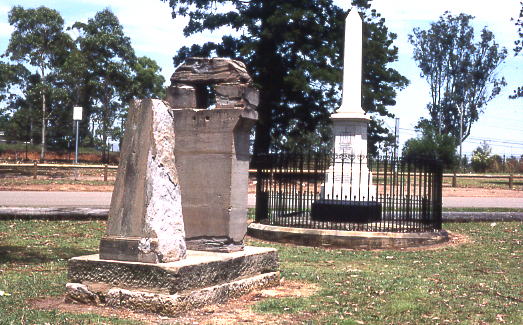|
John Robertson (New South Wales Premier)
Sir John Robertson, (15 October 1816 – 8 May 1891) was a London-born Australian politician and Premier of New South Wales on five occasions. Robertson is best remembered for land reform and in particular the Robertson Land Acts of 1861, which sought to open up the selection of Crown land and break the monopoly of the squatters. Robertson was elected to Parliament in 1856 supporting manhood suffrage, secret ballot, electorates based on equal populations, abolition of state aid to religion, government non-denominational schools, free trade, and land reform. He saw free selection of crown land before survey as the key to social reform with poor settlers being able to occupy agricultural and pastoral land, even that occupied by lease-holding squatters. This insight enabled him to dominate the politics of 1856–61. Biography Robertson was born at Bow, London, the fourth child and third son of James Robertson, a watchmaker and pastoralist from Scotland, and English woman Ann ... [...More Info...] [...Related Items...] OR: [Wikipedia] [Google] [Baidu] |
The Honourable
''The Honourable'' (British English) or ''The Honorable'' ( American English; see spelling differences) (abbreviation: ''Hon.'', ''Hon'ble'', or variations) is an honorific style that is used as a prefix before the names or titles of certain people, usually with official governmental or diplomatic positions. Use by governments International diplomacy In international diplomatic relations, representatives of foreign states are often styled as ''The Honourable''. Deputy chiefs of mission, , consuls-general and consuls are always given the style. All heads of consular posts, whether they are honorary or career postholders, are accorded the style according to the State Department of the United States. However, the style '' Excellency'' instead of ''The Honourable'' is used for ambassadors and high commissioners. Africa The Congo In the Democratic Republic of the Congo, the prefix 'Honourable' or 'Hon.' is used for members of both chambers of the Parliament of the Democrati ... [...More Info...] [...Related Items...] OR: [Wikipedia] [Google] [Baidu] |
Robertson Land Acts
The Crown Lands Acts 1861 (NSW) (or Robertson Land Acts) were introduced by the New South Wales Premier, John Robertson, in 1861 to reform land holdings in New South Wales and in particular to break the Squattocracy's domination of land tenure. The Acts allowed free selection of crown land and made redundant the limits of location, which limited sale of land to the Nineteen Counties which had applied since 1826. The Acts Under the reforms unsurveyed land in an area which had been declared an agricultural reserve in designated unsettled areas could be selected and bought freehold in lots of crown land, wherever situated at £1 per acre (£2 9s 5d/ha), on a deposit of five shillings per acre (12s 4d/ha), the balance to be paid within three years, an interest-free loan of three-quarters of the price. Alternatively at the end of the three years, the balance could be treated as an indefinite loan, as long as 5% interest was paid each year. The Crown Lands Acts consisted of two sepa ... [...More Info...] [...Related Items...] OR: [Wikipedia] [Google] [Baidu] |
Richard Bourke
General Sir Richard Bourke, KCB (4 May 1777 – 12 August 1855), was an Irish-born British Army officer who served as Governor of New South Wales from 1831 to 1837. As a lifelong Whig (Liberal), he encouraged the emancipation of convicts and helped bring forward the ending of penal transportation to Australia. In this, he faced strong opposition from the landlord establishment and its press. He approved a new settlement on the Yarra River, and named it Melbourne, in honour of the incumbent British prime minister, Lord Melbourne. Early life and career Born in Dublin, Ireland, Bourke was educated at Westminster and read law at Christ Church, Oxford. He was a cousin of Edmund Burke and spent school and university holidays at Burke's home, and thus acquired some influential friends. He joined the British Army as an ensign in the Grenadier Guards on 22 November 1798, serving in the Netherlands with the Duke of York before a posting in South America in 1807, where he participated ... [...More Info...] [...Related Items...] OR: [Wikipedia] [Google] [Baidu] |
Henry John Temple, 3rd Viscount Palmerston
Henry John Temple, 3rd Viscount Palmerston, (20 October 1784 – 18 October 1865) was a British statesman who was twice Prime Minister of the United Kingdom in the mid-19th century. Palmerston dominated British foreign policy during the period 1830 to 1865, when Britain stood at the height of its imperial power. He held office almost continuously from 1807 until his death in 1865. He began his parliamentary career as a Tory, defected to the Whigs in 1830, and became the first prime minister from the newly formed Liberal Party in 1859. He was highly popular with the British public. David Brown argues that "an important part of Palmerston's appeal lay in his dynamism and vigour". Henry Temple succeeded to his father's Irish peerage (which did not entitle him to a seat in the House of Lords, leaving him eligible to sit in the House of Commons) as the 3rd Viscount Palmerston in 1802. He became a Tory MP in 1807. From 1809 to 1828 he served as Secretary at War, organising the fi ... [...More Info...] [...Related Items...] OR: [Wikipedia] [Google] [Baidu] |
William Timothy Cape
William Timothy Cape (25 October 1806 – 4 June 1863) was an early school master in Sydney, Australia; several of the Premiers of New South Wales attended his school. Cape was born at Walworth, Surrey, England, the son of William Cape, a London bank manager who emigrated to Australia with his family in 1821. Cape senior became master of a private school, the Sydney Academy, at the end of 1822 and died in 1847. William Timothy Cape was educated at the Merchant Taylors' School, London, and was intended for the Church of England ministry. However, on his arrival in Australia, became an assistant master at his father's school. Though just 20 years of age he was made headmaster of the Sydney public school on 1 July 1827 when his father resigned. He had already made a reputation as a teacher and shortly afterwards, when a number of public school teachers from the country were brought into Sydney for training, Cape was given charge of them as he was considered the only qualified p ... [...More Info...] [...Related Items...] OR: [Wikipedia] [Google] [Baidu] |
John Dunmore Lang
John Dunmore Lang (25 August 1799 – 8 August 1878) was a Scottish-born Australian Presbyterian minister, writer, historian, politician and activist. He was the first prominent advocate of an independent Australian nation and of Australian republicanism. Background and family Lang was born near Greenock, Renfrewshire (now Inverclyde), Scotland, the eldest son of William Lang and Mary Dunmore. His father was a small landowner and his mother a pious Presbyterian, who dedicated her son to the Church of Scotland ministry from an early age. He grew up in nearby Largs and was educated at the school there and at the University of Glasgow, where he excelled, winning many prizes and graduating as a Master of Arts in 1820. Stevenson McGill was his most influential teacher; he also greatly admired Thomas Chalmers. His brother, George, had found employment in New South Wales and Lang decided to join him. He was ordained by the Presbytery of Irvine on 30 September 1822. Arriving in Sydn ... [...More Info...] [...Related Items...] OR: [Wikipedia] [Google] [Baidu] |
Cremorne Point
Cremorne Point is a harbourside suburb on the Lower North Shore of Sydney, New South Wales, Australia. Cremorne is located 6 kilometres north of the Sydney central business district, in the local government area of North Sydney Council. Cremorne Point shares the postcode of 2090 with Cremorne, a separate suburb to the north. Cremorne Point sits on Sydney Harbour between Shell Cove and Mosman Bay. Cremorne Junction is a locality within the suburb of Cremorne. Etymology Cremorne was named after the Cremorne Gardens in London, a popular pleasure ground in England, which derives from Gaelic words meaning 'boundary' and 'chieftain'. Robertsons Point was named after James Robertson who was granted 35 hectares there in 1820. He was the father of Premier Sir John Robertson. History Wooloorigang / Cremorne Point and Mosman Bay were both once Cammeraygal territory named Wul-warra-Jeung before European settlement in Sydney Cove to their south. Aborigines called the waters east of ... [...More Info...] [...Related Items...] OR: [Wikipedia] [Google] [Baidu] |
Parramatta
Parramatta () is a suburb and major Central business district, commercial centre in Greater Western Sydney, located in the state of New South Wales, Australia. It is located approximately west of the Sydney central business district on the banks of the Parramatta River. Parramatta is the administrative seat of the Local government areas of New South Wales, local government area of the City of Parramatta and is often regarded as the main business district of Greater Western Sydney. Parramatta also has a long history as a second administrative centre in the Sydney metropolitan region, playing host to a number of state government departments as well as state and federal courts. It is often colloquially referred to as "Parra". Parramatta, founded as a British settlement in 1788, the same year as Sydney, is the oldest inland European settlement in Australia and is the economic centre of Greater Western Sydney. Since 2000, government agencies such as the New South Wales Police Force ... [...More Info...] [...Related Items...] OR: [Wikipedia] [Google] [Baidu] |
Thomas Brisbane
Major General Sir Thomas Makdougall Brisbane, 1st Baronet, (23 July 1773 – 27 January 1860), was a British Army officer, administrator, and astronomer. Upon the recommendation of the Duke of Wellington, with whom he had served, he was appointed governor of New South Wales from 1821 to 1825. A keen astronomer, he built the colony's second observatory and encouraged scientific and agricultural training. Rivals besmirched his reputation and the British Secretary of State for the Colonies, Lord Bathurst, recalled Brisbane and his colonial secretary Frederick Goulburn. Brisbane, a new convict settlement, was named in his honour and is now the 3rd largest city in Australia. Early life Brisbane was born at Brisbane House in Noddsdale, near Largs in Ayrshire, Scotland, the son of Sir Thomas Brisbane and his wife Eleanora (née Bruce). He was educated in astronomy and mathematics at the University of Edinburgh. He joined the British Army's 38th (1st Staffordshire) Regiment of Foot ... [...More Info...] [...Related Items...] OR: [Wikipedia] [Google] [Baidu] |
Squatting (pastoral)
Squatting is a historical Australian term that referred to someone who occupied a large tract of Crown land in order to graze livestock. Initially often having no legal rights to the land, squatters became recognised by the colonial government as owning the land by being the first (and often the only) European settlers in the area. Eventually, the term "squattocracy", a play on "aristocracy", came into usage to refer to squatters and the social and political power they possessed. Evolution of meaning The term 'squatter' derives from its English usage as a term of contempt for a person who had taken up residence at a place without having legal claim. The use of 'squatter' in the early years of British settlement of Australia had a similar connotation, referring primarily to a person who had 'squatted' on Aboriginal land for pastoral or other purposes. In its early derogatory context the term was often applied to the illegitimate occupation of land by ticket-of-leave convicts or ... [...More Info...] [...Related Items...] OR: [Wikipedia] [Google] [Baidu] |
Crown Land
Crown land (sometimes spelled crownland), also known as royal domain, is a territorial area belonging to the monarch, who personifies the Crown. It is the equivalent of an entailed estate and passes with the monarchy, being inseparable from it. Today, in Commonwealth realms such as Canada and Australia, crown land is considered public land and is apart from the monarch's private estate. In Britain, the hereditary revenues of Crown lands provided income for the monarch until the start of the reign of George III, when the profits from the Crown Estate were surrendered to the Parliament of Great Britain in return for a fixed civil list payment. The monarch retains the income from the Duchy of Lancaster. Australia In Australia, public lands without a specific tenure (e.g. National Park or State Forest) are referred to as Crown land or State Land, which is described as being held in the "right of the Crown" of either an individual State or the Commonwealth of Australia; ther ... [...More Info...] [...Related Items...] OR: [Wikipedia] [Google] [Baidu] |
Free Trade
Free trade is a trade policy that does not restrict imports or exports. It can also be understood as the free market idea applied to international trade. In government, free trade is predominantly advocated by political parties that hold economically liberal positions, while economic nationalist and left-wing political parties generally support protectionism, the opposite of free trade. Most nations are today members of the World Trade Organization multilateral trade agreements. Free trade was best exemplified by the unilateral stance of Great Britain who reduced regulations and duties on imports and exports from the mid-nineteenth century to the 1920s. An alternative approach, of creating free trade areas between groups of countries by agreement, such as that of the European Economic Area and the Mercosur open markets, creates a protectionist barrier between that free trade area and the rest of the world. Most governments still impose some protectionist policies that are ... [...More Info...] [...Related Items...] OR: [Wikipedia] [Google] [Baidu] |







